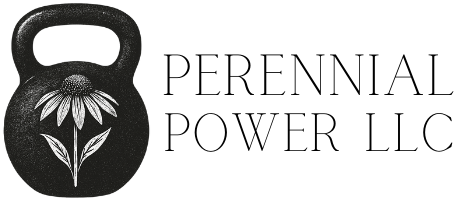Why Starting Exercise In Midlife Feels Hard at First (and Why That Changes)
If you’ve spent years caring for everyone else—family, career, community—it’s easy to look up one day and realize your own fitness has quietly slipped to the background. Then, when you finally carve out time to move again, it can feel startlingly hard. Muscles protest. Joints feel stiff or unfamiliar. Breathing feels heavier than you remember. Even simple movements can feel foreign, and the gap between how you used to move and how you move now can be discouraging.
But that gap doesn’t mean your body has failed you. It’s been doing its best to adapt to hormonal changes, stress, and years of putting others first. The strength, balance, and energy you remember are still there—they’ve just gone quiet for a while, waiting for the invitation to return.
When we stop training, our bodies become less efficient at movement. The neural pathways between the brain and muscles—the “wiring” that makes movement feel smooth and coordinated—get a bit rusty. Our mitochondria (the energy centers in cells) decrease in number. Muscles lose some tone, endurance fades, and the cardiovascular system becomes less efficient. None of this is permanent decline; it’s just reversible deconditioning.
At the same time, hormones begin shifting in perimenopause and menopause. Estrogen and progesterone drop, which can make recovery slower and joints feel stiffer. Sleep changes, too—and that alone can make everything feel harder. Combine all of that with a busy life, stress, and the emotional weight of “starting over,” and it’s no wonder many women feel discouraged before they even begin.
But here’s the hopeful part: the body adapts quickly, even in your 40s, 50s, and beyond. Within a few weeks of consistent movement—whether that’s strength training, walking, or bodyweight exercise—your nervous system starts firing more efficiently. Muscles wake up. Your heart and lungs adjust. That early “everything hurts” feeling fades. What once felt foreign begins to feel familiar again.
Research shows that women in midlife can gain strength, muscle, and endurance just as effectively as younger adults when they train progressively. You’re not past your prime—you’re just out of practice. And practice is something you can always return to.
There’s also a psychological shift that happens once you start: your brain begins associating movement with energy instead of exhaustion. You start to look forward to how it makes you feel, not just how it might make you look. That’s the moment when it clicks—and it’s closer than you think.
So if you’ve fallen out of shape, start small. Ten minutes of movement today is better than waiting for motivation to appear. Your body doesn’t need you to be perfect; it just needs you to start reminding it what it’s capable of.
Because it still remembers. And once you begin again, it won’t take long for you to remember too.
If you’re ready to begin—or begin again—I’d love to help you find a starting point that feels doable and right for you. Schedule a free consultation and let’s talk about how to get your body feeling strong and familiar again.
